Here's how Animal Crossing: New Horizons simulates the real-world economy
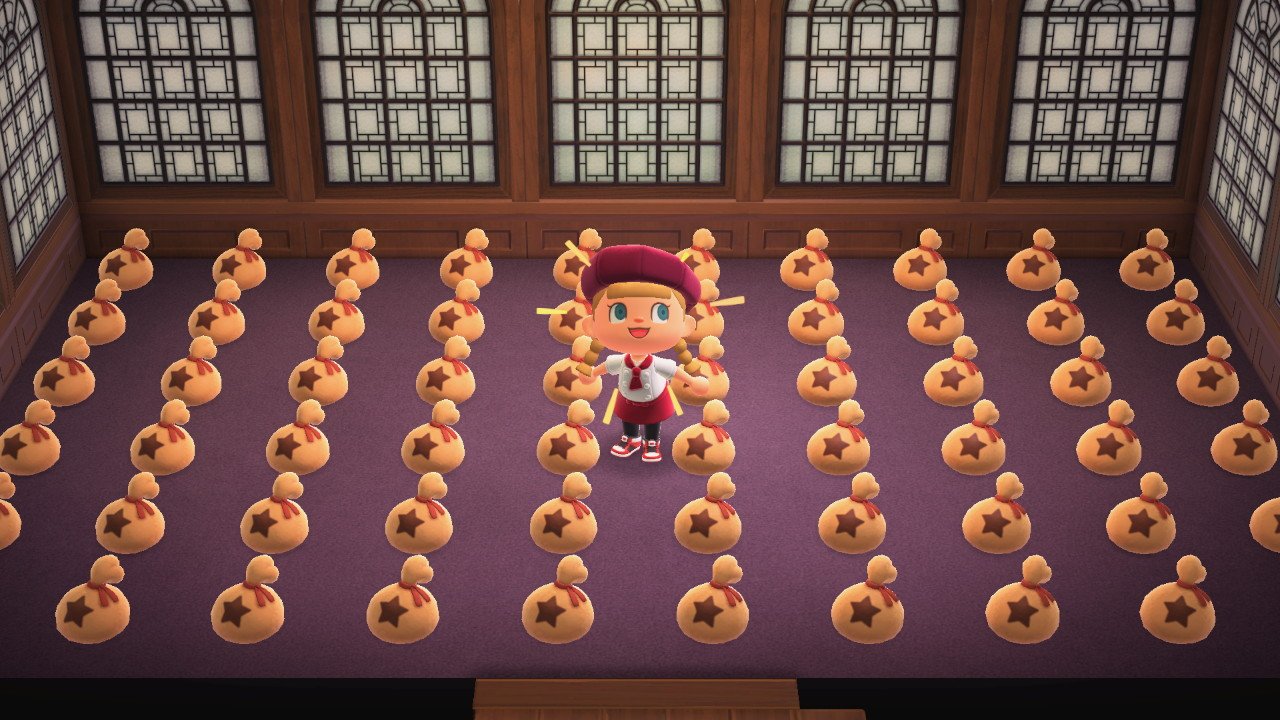
Animal Crossing: New Horizons (ACNH) has been a huge success, selling over 13.41 million copies in its first six weeks on the market. While it's helping stimulate the economy during the pandemic, it's also teaching players about economics. That might come as a surprise to some people since ACNH looks like an overly simple life sim with its cartoony art style and lighthearted focus. However, it's actually a deceivingly complex game that causes players to engage with supply and demand, market arbitrage, and other market dynamics.
This is in part due to the in-game stock Stalk Market mechanics, as well as the real-world services that have popped up surrounding this game. You see, around the time of ACNH's launch not only was there an increase of Animal Crossing related items on Amazon and eBay, but several fan-made Discord servers, subreddits, Facebook Groups, and even transaction-based services popped up online. Engaging with these real-world Animal Crossing groups as well as the in-game Stalk Market forces players to engage with a market system whether or not they fully realize it.
What is the Stalk Market and how does it teach economics?
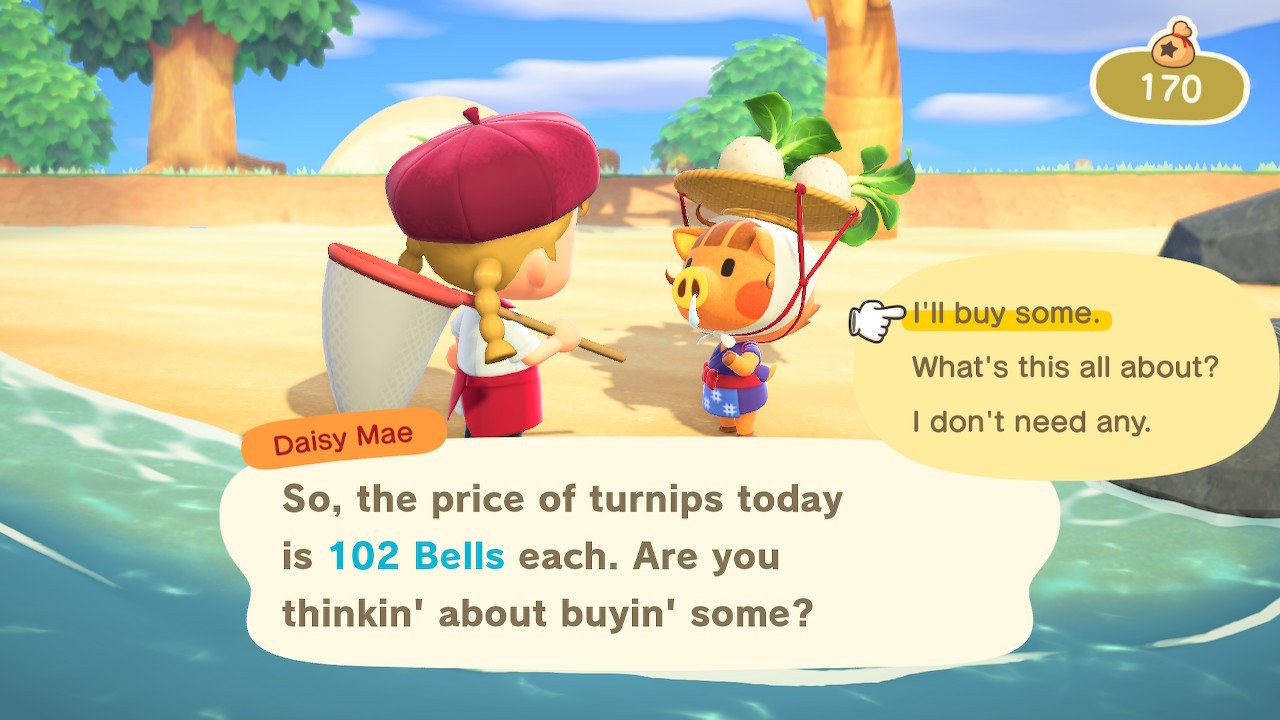
Let's start off with the Stalk Market. Each Sunday morning, ACNH players can purchase turnips from an NPC named Daisy Mae, although the price for these turnips will differ from player to player. Once acquired, these turnips can be sold to the in-game store throughout the week for Bells (the in-game currency). Prices fluctuate as the week passes, but the turnips rot by the following Sunday, so players are caught between holding out for the best price and being worried about spoilage — not unlike selling perishable goods in the real world.
Things get more interesting because players can also travel to other players' islands to buy turnips or sell their turnips to another player's store. By taking advantage of the system via market arbitrage, players can purchase turnips for cheap and then earn millions of Bells when selling them between islands.
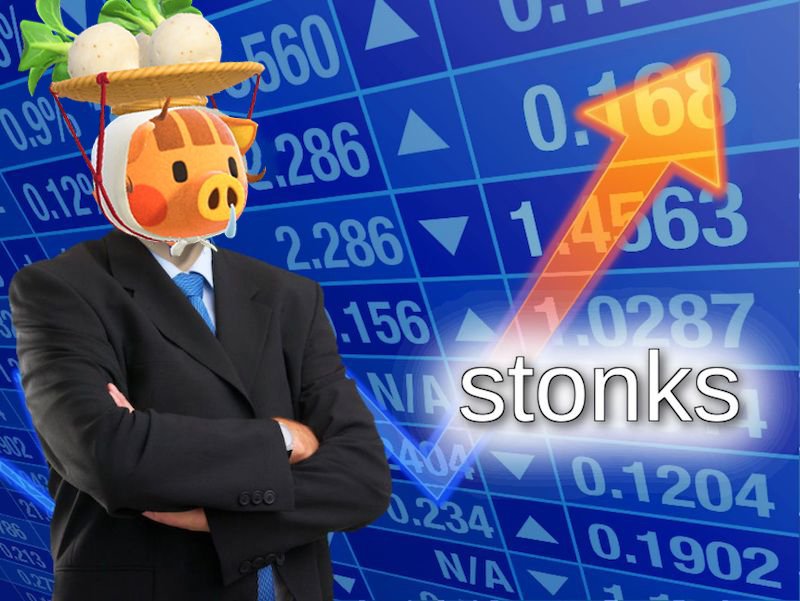
Thousands of players have turned to online turnip prediction calculators for help, the most popular of which is Turnip Prophet. These sites help detect patterns in the Stalk Market by allowing players to input their daily turnip prices. The site then inputs the data, runs some numbers, and tries to spot a trend so you know how to maximize profits. In many ways referring to these sites isn't unlike analysts trying to find patterns in the real stock market.
Now obviously, this mock stock market system wouldn't work in the real world since NPCs have an endless amount of turnips and money to exchange. Realistically, the turnip exchange would reach an economic equllibrium and the price of turnips would hold relatively steady, even between islands, unless there was a serious issue causing a turnip shortage for some players. Still, even though the Stalk Market isn't real, it teaches the basic concepts behind the real-world stock market. This includes the idea of fluctuating prices, the desire to buy low and sell high, the need to constantly keep an eye on current trends, and basic investment ideology.
Players are spending real-world money to sell their turnips and hire in-game bouncers.
Some players are even willing to spend actual money in order to fly to an island that has high turnip prices. For instance, there's a Patreon for a service called Warp World Pro that gives players a priority listing to host islands if they are a certain Patreon tier. However, reaching out to random players can be scary since there's a lot of scamming going on. Some people won't hold up their end of the deal after receiving payment or you might have a visitor who steals your items and destroys your island while they're there.
Oddly enough, this has led some people to hire bouncers to protect their islands whenever they have a good turnip price. The ACNH bouncers might stand in front of stores so that visitors can't enter unless they have paid a previously agreed upon entry fee. They might also block the path into other areas of the island to prevent players from stealing or destroying anything. In return for their services, island hosts will often split all tips and profits obtained by visitors. This once more causes players to engage with a market dynamic of purchasing and offering services.
Fan-based Animal Crossing groups behaving like businesses
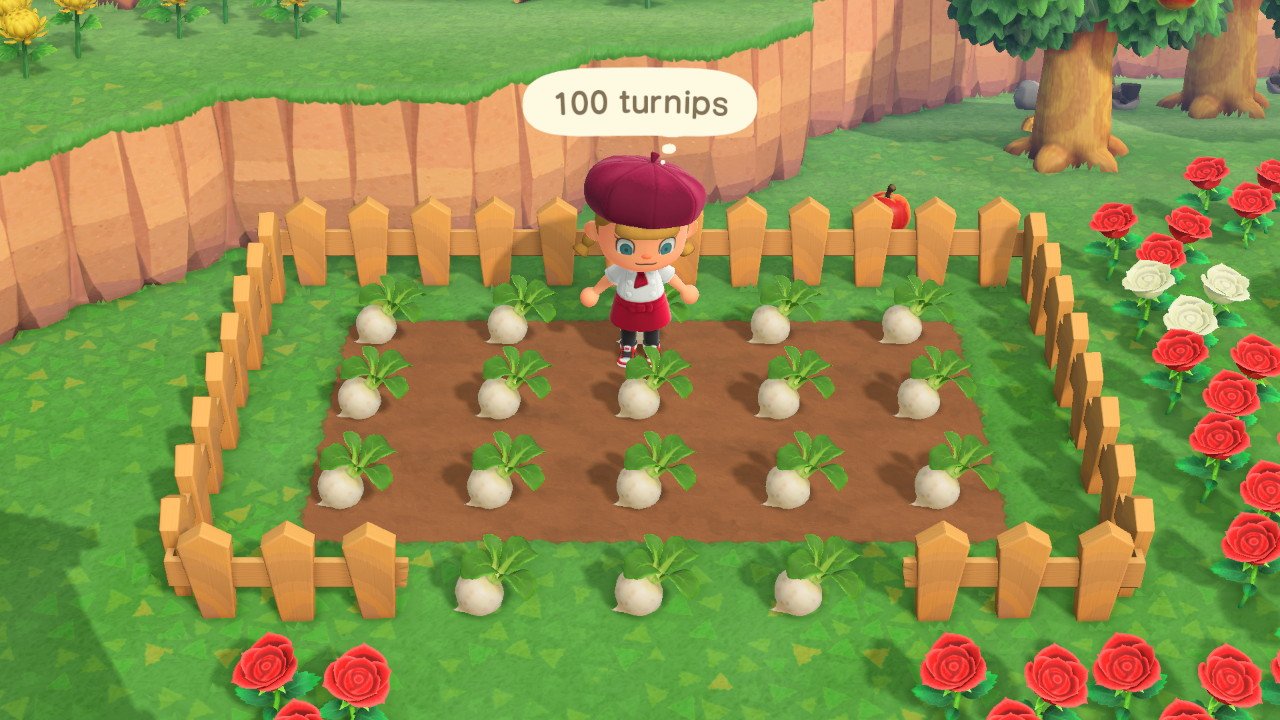
For added security, some folks are banding together into online groups to find good turnip prices, villagers, and items without having to deal with online trolls. Group members share their daily turnip prices and invite others over to their island when the selling is good. Some groups allow players to charge entry fees while others forbid them entirely. Either way, these turnip groups effectively help ensure that every member can get rich relatively easily. When necessary, group leaders will remove troublesome members and will even list the rules of etiquette for visiting another island, which helps ensure a safe environment.
I was able to interview one of the founders behind the Facebook group Stalk Market Insiders - AC:NH Turnip Turners, who would like me to refer to her as her Animal Crossing name, Kirikku. The group was started four days after the release of ACNH and it didn't take a lot for this group to expand. In fact, Kirikku explained that Stalk Market Insiders - AC:NH Turnip Turners initially started as a private group for three friends, but since then, random Facebook users have asked to be added in.
Unlike some other groups, this one doesn't allow players to charge any form of entry fee for visiting another player's island. And yet, the etiquette norm for most players within this group is to drop some kind of tip for the host, whether that be thousands of Bells, a rare item, or hybrid flowers. Since this is done willingly, the group maintains a friendly and courteous air. At the time of this article, Stalk Market Insiders has expanded to over 700 members without any advertising and more members are joining every day.
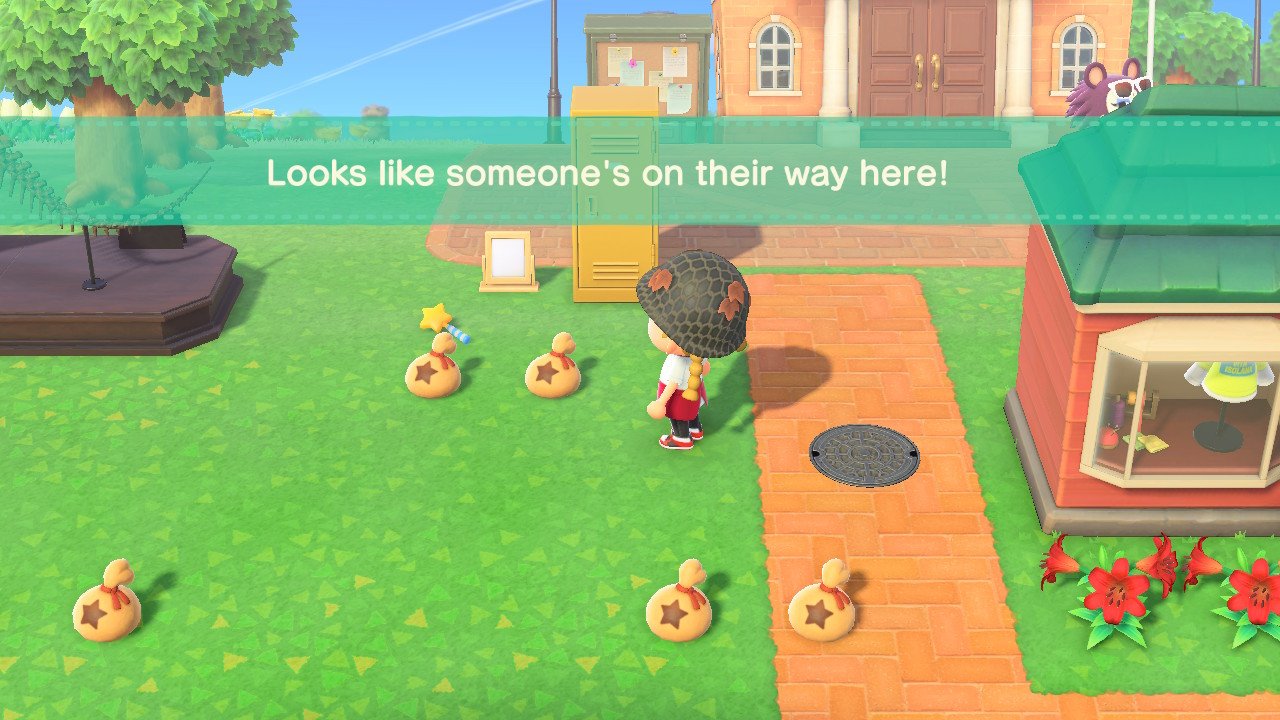
I also had the opportunity to speak with two staff members from the Discord server Daisy Mae's Exchange. Akira (given name) is the owner of the server while Taylor (given name) is a secondary admin who also functions as the PR rep for the group. Even though the server has only been around for about two weeks, it has garnered over 10,900 members. In addition to turnips, players can also use this server to locate villagers for adoption, sell items, submit fan art, and much more. A lot of work goes into running all of these aspects, which is why there are currently four staff and three moderators to address any issues, suggestions, or user concerns.
Staff members are treating their Discord servers like full-time jobs by addressing user concerns, listening to suggestions, and making changes.
The staff members treat the server like a full-time job. Akira stated that she gets up at 5 a.m. and puts in long hours each day specifically to work on the server while Taylor has taken to getting up at 3 p.m. and going to bed at 7 a.m. to keep up with the group.
"We honestly all enjoy hanging out with each other. We want to be awake when the others are so we can all hang out," Taylor said.
The group doesn't advertise, but they do sometimes allow members to donate in order to help bring specific mods to the server, though they're very cautious when doing this. "No advertising, no profit. We're trying to work with another cite to get a turnip bot. No one has to give money, that's the only thing the money will be used for. This is a kids' game. I'd feel morally wrong if we were trying to charge a kid to get into a giveaway with staff. Especially when people are — as it is — trapped at home," Taylor said. Akira and Taylor state that this is a game for all ages and they want to create a community that is safe and inviting for every player.
Corruption and reform
Akira and Taylor have learned first-hand the importance of having a safe server. In many ways, some of the popular ACNH turnip groups can end up behaving like corrupt businesses. For example, I also interviewed Tony (name changed to protect identity), who, at one point, was in charge of a large Discord server that boasted over 17,000 members. The group allowed players to report turnip prices, trade villagers, and find items for their islands.
Unfortunately, some strange dealings were going on. Akira was part of the moderation team within this server. She and Taylor explained that members of the server were promised in-game goods in exchange for donations, but members weren't receiving the promised items after sending the money.
Akira didn't like being part of a community that had scamming issues, so she broke away, started the Daisy Mae's Exchange server, and invited other members from the other server to join her. But it hasn't been an easy process. "[Akira] received so much hate when she tried to move the server," Taylor explained. This is due to the fact that many of the members weren't aware that any scamming was going on.
Members of the server were promised in-game goods in exchange for donations, but members weren't receiving the promised items.
"I wish they would have taken the time to gather [evidence] together and presented it in a more professional manner," Taylor continued, "but I don't think that any of us feel like we have done anything wrong in this outcome [sic]."
Akira and Taylor stated that the number of unaccounted donations have amounted up to "around $1,000." The staff of the Daisy Mae's Exchange are still trying to clean up the scamming mess created by the original server and likely will be for a while.
"It's been a nightmare to be in the middle of this frankly ridiculous thing," Taylor said, "I not only feel bad for Akira and the team that's here, but I also feel bad for all of the people that spent hundreds of dollars... There have been quite a few people who have personally DM'd me, you know, to send me PayPal disputes they're in the middle of."
At the time of writing this, Tony's original server has been deleted and he's erected a new server of the same name in its place. It is now only home to 2,000 users. Daisy Mae's Exchange only had about 2,000 members come over from the original server, but at the time of writing this, they've organically grown to have over 10,900 members. If that's not an example of real-world business moves and the American Cinderella story, I don't know what is. If nothing else, it shows you just how seriously people are taking these Stalk Market exchange groups.
The Villager Black Market teaches real-world supply and demand

Turnips aren't the only thing that are causing players to interact with the real-world economy. Each player has an island that can house 10 animal villagers. Thing is, there are around 390 potential villagers and some are far more popular than others. Players must rely on chance and hope for their favorites to appear or they can spend real money on an amiibo card, which when scanned allows them to invite a specific villager to their island.
Thing is, as with most Nintendo gear, amiibo cards are hard to find, which has set up the perfect scenario to teach players about supply and demand. Some of the most popular villagers' amiibo cards are worth $60 to $100+ apiece on eBay. People are willing to pay for them, too, even though when you step back and look at them, they are just simple trading cards with NFC chips inside.
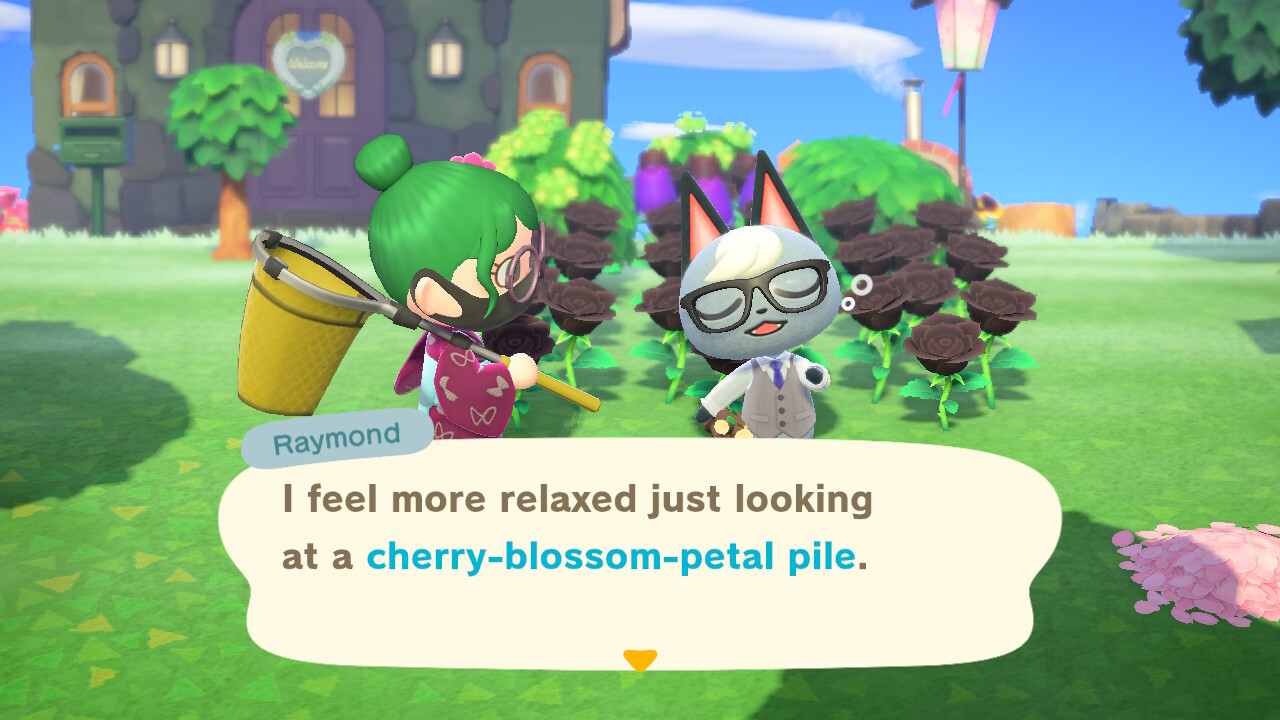
This has sparked an industry of bootleg NFC chips that work just like the amiibo cards but can be purchased at a reasonable price on eBay and similar sites. It helps that — as long as you have the necessary equipment and software — counterfeit amiibo are surprisingly easy to make. This is evidenced by the number of how-to subreddits and instructional Youtube videos there are out there on the subject.
The low supply of Animal Crossing amiibo cards has also lead to what the people of the internet refer to as the "villager black market." Players will pay other players for the chance to adopt a villager. For instance, Raymond the cat is currently the most sought after villager on the black market. People are even selling Raymond's fleas or forcing players to pay just to see Raymond in person. The reason people are so keen to get him is because 1) he's gotten a following online and 2) New Horizons was his first game. He doesn't have an amiibo card yet, so players can't pull him into thier villages as easily. Some folks are paying in-game items or real-world money in order to acquire him. Once again causing people to engage in a real-world market.
Animal Crossing: Econ 101
Animal Crossing is a simple game on paper, but what makes it complex is how much the game inspires players to interact with each other in both the mock stock market and real-world market exchanges. Whether players realize it or not, buying and selling rare villagers, keeping an eye on the Stalk Market, and participating in turnip exchange groups is making them engage in real-world and in-game market economies. This effectively makes Animal Crossing's in-game interactions a microcosm for real-world economics that serves as a training ground for real-world money exchanges.

○ Zelda outfits for Animal Crossing
○ How to make money fast
○ Multiplayer guide
○ How to become best friends
○ The NookPhone explained
○ What is NookLink?
○ Can you play Animal Crossing on Nintendo Switch Lite?
○ Every Animal Crossing amiibo
○ Best Animal Crossing Switch accessories
Master your iPhone in minutes
iMore offers spot-on advice and guidance from our team of experts, with decades of Apple device experience to lean on. Learn more with iMore!

Gaming aficionado Rebecca Spear is iMore's dedicated gaming editor with a focus on Nintendo Switch and iOS gaming. You’ll never catch her without her Switch or her iPad Air handy. If you’ve got a question about Pokémon, The Legend of Zelda, or just about any other Nintendo series check out her guides to help you out. Rebecca has written thousands of articles in the last six years including hundreds of extensive gaming guides, previews, and reviews for both Switch and Apple Arcade. She also loves checking out new gaming accessories like iPhone controllers and has her ear to the ground when it comes to covering the next big trend.
